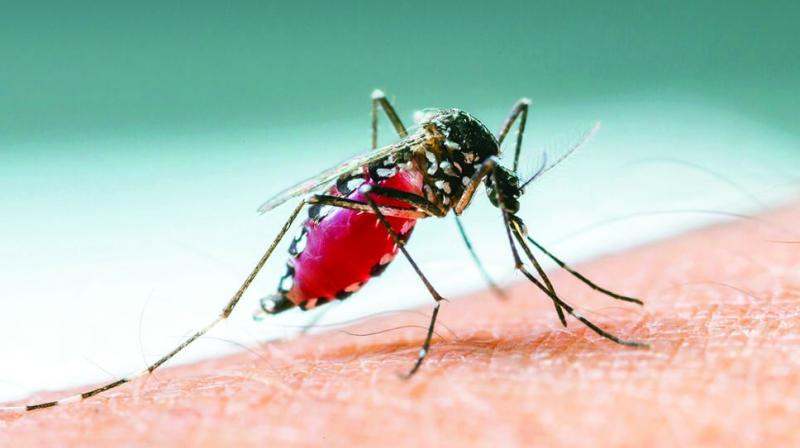Major overhaul must for end-malaria goal
India contributes the highest malaria cases outside Africa.

Hyderabad: With Sri Lanka having officially eradicated malaria in 2016 and China poised to do so by 2020, the question of whether India can get rid of the disease at least by 2030 has become an important one in medical circles.
In 2017, Union minister of Health & Family Welfare J.P. Nadda launched the National Framework for Malaria Elimination in India 2016-2030, though the plan is to complete the job by 2027, three years ahead of the global deadline.
In the opinion of most medical practitioners, the task requires a major overhaul of the current health system, which has to be standardised, and treatment protocols must be in unison and not differ from one hospital to another.
Both China and Sri Lanka have followed strict protocol in notifying authorities of incidences of the disease and enforcing accountability.
Former Indian Medical Association president Dr K.K Aggarwal says, “These countries had one treatment protocol, were strict in the matter of notification and enforced uniform drug prices. This has helped them take complete control of the situation and eliminate the virus from their atmosphere. If India has to eradicate malaria by 2030, these aspects have to be closely worked on.”
Another major challenge at present is erratic climate change, aiding the spread of vector-borne diseases. India is one of the 11 countries in the World Health Organisation’s South-Eastern region, with nearly 980 million people at risk of malaria. According to WHO estimates, India contributes the largest number of malaria cases outside the continent of Africa.
Dr K. Seshi Kiran, senior general physician at Yashoda Hospitals, says, “When a mosquito bites a person with a virus or parasite, the insect swallows the pathogen. Eventually, the mosquito can pass that pathogen on to another person. The warmer the weather, the faster the pathogen will be ready to infect another person. India’s official statistics suggest that P. falciparum accounts for half of the clinical malaria cases in India.
With the change in climate, temperatures are becoming warmer, which speeds up parasite development as well as transmission of diseases.” These new problems are adding to the existing burden and it thus becomes important to follow the right notification norms. At present, notifications are issued only by accredited hospitals, while most others merely focus on treating the cases.
Dr Prabhavati, additional director and in-charge of the malaria control programme, says, “We have to ensure that patients do not carry the parasite and spread it around. For that reason, we have to ensure that patients complete the treatment.
This requires following up with patients treated both in public and private hospitals. In cities, such a course of action is relatively easier to follow, but the major challenge lies in non-urban areas, where people don’t always come to healthcare units for treatment and the parasite continues to spread.”
